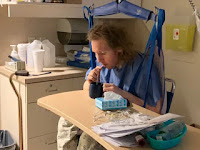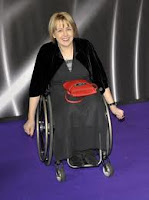Alex Schadenberg
Executive Director, Euthanasia Prevention Coalition
 |
| Danny Kruger |
Danny Kruger's article: Assisted-dying advocates’ claims of freedom have it backward was published in the Economist on November 21, 2024.
Kruger states that the primary purpose of the assisted dying bill is to give people the right to ask the state to kill them:
The practical problems with the Terminally Ill Adults (End of Life) Bill are stark and inescapable. The proposed law would require doctors and judges—both are needed, in a reflection of the fact that neither is really competent to do so—to confirm that a patient may reasonably be expected to die within six months, and that he or she genuinely and freely wishes to die.
A 6 month prognosis can be assigned to a person who refuses treatment (drugs) and refuses to eat. Kruger continues:
If our only object were—as it should be—to relieve suffering at the end of life, to address the practical realities of death, there is a simple solution: to properly resource palliative care. Modern pain-relief drugs mean almost no one needs to die in unbearable physical agony. Everyone can be helped to die well, but end-of-life care at the moment is patchy and shamefully underfunded.
Many of the assisted dying campaigners view the bill as a beginning. Once legalized assisted dying will soon be expanded as Kruger points out:
The idea that animates the bill is that of absolute patient autonomy.
But the opposite becomes true:
... the crucial paradox is that it will have precisely the opposite effect. A religion of individual control, of personal freedom, is not liberating in practice, but rather deeply disempowering. There remain Labour members of Parliament who remember that “progressive” politics used to be about protecting the vulnerable from abuses of power—that individual autonomy is not the highest good, because different people have different degrees of agency and in a liberal free-for-all the powerless get trampled....
Under the bill, doctors will be allowed to suggest assisted dying to patients who have not mentioned the idea themselves. If the patient requests it from a doctor who does not agree with the practice, that doctor will be obliged to refer them to a colleague who does. Here we see the dynamic established: this is presented as a plausible, even a good choice for patients to make, and the system will help them to make it. The echoes of the Liverpool Care Pathway, a notorious scheme of ten years ago by which patients were essentially assigned by the National Health Service to die, should sound in our ears.
The law’s very existence would put pressure on each patient and their family to have “the conversation”, whether openly at the bedside or whispered outside the room: is it time for Mum or Dad to die? Patients would bear the awful responsibility of deciding whether to go now—sparing their loved ones the cost and distress of caring for them—or to hold on selfishly, messily, expensively.
This is not freedom. It is not autonomy.
It is a terrible burden to place on people at their most vulnerable. It is not “choice” when one option is so total and potentially compelling. It speaks of a profound disrespect for the frail, and raises over the disabled a spectre that haunts them: the awareness that others might think them better off dead.
Kruger calls for a greater commitment to caring:
The dignity that we need at the end of life is to be fully cared for as we die. There is no disgrace in dependence or being a “burden” to others. And the choice we need is that over our care, including using advanced health-care directives to provide clear wishes on being resuscitated or kept alive if we were to lose cognition or the ability to communicate.
Not for nothing do campaigners for assisted dying call it “the last right”. For this is the unintended object of the theology of control. Cross this Rubicon and, as with Julius Caesar, the republic of liberty falls. In the name of progress we will obliterate the key protection which all of us have need of as we grow old and ill and burdensome: that the people at our bedside will not connive to kill us.
Previous article related to Danny Kruger:
- The cruelty of assisted dying (Link).
















